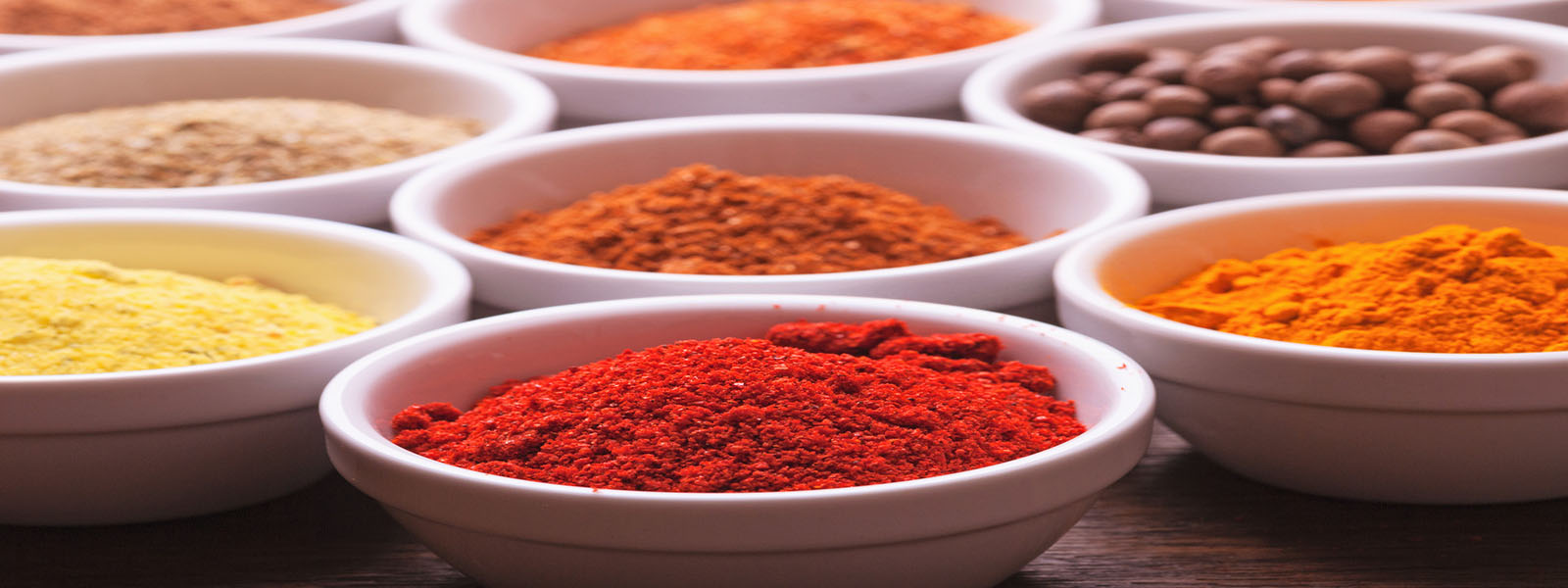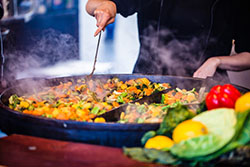
05 Feb The Lesson from my Kitchen
“I am going to make something special for dinner tonight,” announced my mom on a cold February morning during one of her visits in the United States. I wasn’t sure what she meant because anything my mom made was impressive. Cooking was my mom’s love language. She made sure we knew how much she loved us through her handmade pierogis, jelly donuts, stuffed cabbage rolls, and other Polish dishes my family and I were delighted to try.
Despite best intentions and the excitement about the new cooking delight, the evening didn’t turn out the way my mother planned and my family looked forward to. For me, it was a valuable lesson I still remember on days when I put on my apron or my interpreter’s suit.
My mom knew her way around the kitchen when she was in Poland, but in the United States, she needed help with finding the right ingredients. Because of the language barrier and lack of confidence in a foreign country, she relied on my sons and me to read and translate the names of the products she needed for her cooking projects.
 The “special dinner” menu was one of my favorites: hunter stew and apple cake for dessert. Before I left for work that day, my mom and I had to make sure she had all the ingredients. The dinner choices required lots of different spices, and I needed to get them out for mom since she couldn’t read their English names. It was a busy morning with my kids trying to grab my attention, the phone ringing off the hook, and the clock indicating it was time for me to leave for work. While my mom said the spice’s names in Polish, I found them, translated their names into her native language, and attached sticky notes to each spice container. After a few minutes, she had everything she needed to have fun in the kitchen, and I could leave knowing that I had done my part.
The “special dinner” menu was one of my favorites: hunter stew and apple cake for dessert. Before I left for work that day, my mom and I had to make sure she had all the ingredients. The dinner choices required lots of different spices, and I needed to get them out for mom since she couldn’t read their English names. It was a busy morning with my kids trying to grab my attention, the phone ringing off the hook, and the clock indicating it was time for me to leave for work. While my mom said the spice’s names in Polish, I found them, translated their names into her native language, and attached sticky notes to each spice container. After a few minutes, she had everything she needed to have fun in the kitchen, and I could leave knowing that I had done my part.
When I pulled into the driveway that evening, I smelled the food I could recognize from the time I lived in Poland. My heart melted, and my stomach growled. I was starving! I walked into the kitchen, and I saw my mom and my family waiting patiently for me to join them at the table with big smiles on their faces. I took the first bite and paused. I watched my younger son putting a spoonful into his mouth and making a face as if he wanted to spit the food out of his mouth. His brother’s reaction was very similar. We looked at my mom, and she almost cried. Something went seriously wrong.
My gaze slowly moved to the containers with the spices left on the kitchen counter and sticky notes still attached to them. And then I remembered rushing in the morning, the distractions, and not paying enough attention to what I was doing at the moment. I mixed up the sticky notes! The stew ended up with cinnamon and cardamon and apple pie with cumin and cayenne.
The importance of being present
Takeout pizza saved us from going to bed hungry that night, but what if the sticky notes had names of medications written on them? Or instructions on how to use sharp tools? The spices looked very similar in their containers, and even though my mother was suspicious about some of them, she trusted I knew what I was doing. After all, I was a professional interpreter!
In many situations involving court or medical interpreting and translating, the stakes are much higher than losing dinner one evening. Health and freedom are the most valuable assets people have, and our responsibility as professional interpreters and translators is to do our job as well as we can and not jeopardize these assets. We often face distractions, requests, and time constrictions, but being present no matter what else is happening around us can make a difference in conveying the message and the impact of our interpretation and translation on people’s lives. The difference can be a lot greater than hunter’s stew or pizza for dinner, and we all have plenty of examples of various scenarios.
I learned another important lesson that day. I am sure my mother knew something was wrong with the spices, but she set aside her doubts and assumed I knew what I was doing. Often, interpreters are the only people in the room who understand everything that is being said, and translators are the only people who know both the original document and its translation. Everyone in the room trusts that we know our stuff and that we have the skills needed to take care of the situation. I learned that It is crucial that we know how to be present in each moment with every sentence and every word being said or written.
How do you bring your mind to the present moment? I take deep breaths, feel the ground under my feet, try to relax my tight muscles, and then… I remember the sticky notes.

Urszula Bunting is a professional Legal and Medical Interpreter and Translator. She is a National Board Certified Health and Wellness Coach, a member of the American College of Lifestyle Medicine, Registered Yoga Teacher, and published author. Urszula is passionate about empowering people to take charge of their health and to transform life’s difficulties into opportunities to grow. For more information, please visit www.ubwell4life.com.
Read other posts by Urszula Bunting.

Wow, what a beautiful observation and so true in this fast paced, filled with distractions life we live. Thanks so much! 🙂
– Gila
You’re welcome, Gila. Thank you for reading and commenting. I am glad the story resonates with you and reminds you of what matters in life. Best wishes!
Yes! Thank you! Good story.
You’re welcome, Elaine! I am glad you like my story.
FABULOUS and very tangible reminder… a memorable story with a great message, thanks for sharing.
My pleasure, Bridget. The best teaching moments are these in real life. Thank you for making time to reflect on the story and sharing your insights.
What a beautiful article and tender story. Thanks for sharing a little bit of your culture with the rest of us!
Brava!
Thank you, Francesca. Our culture is a gift we need to share with others. I am grateful for being a part of a community that can understand and appreciate our cultural differences and similarities.
Love this. Thank you!! It also reminds me even the “low stakes” things are deeply important.
Excellent observation, Peggy! Sometimes what seems “low” to us might be “high” to others. Thank you!
Excellent observation, Peggy! Sometimes what seems “low” to us might be “high” to others. Thank you!